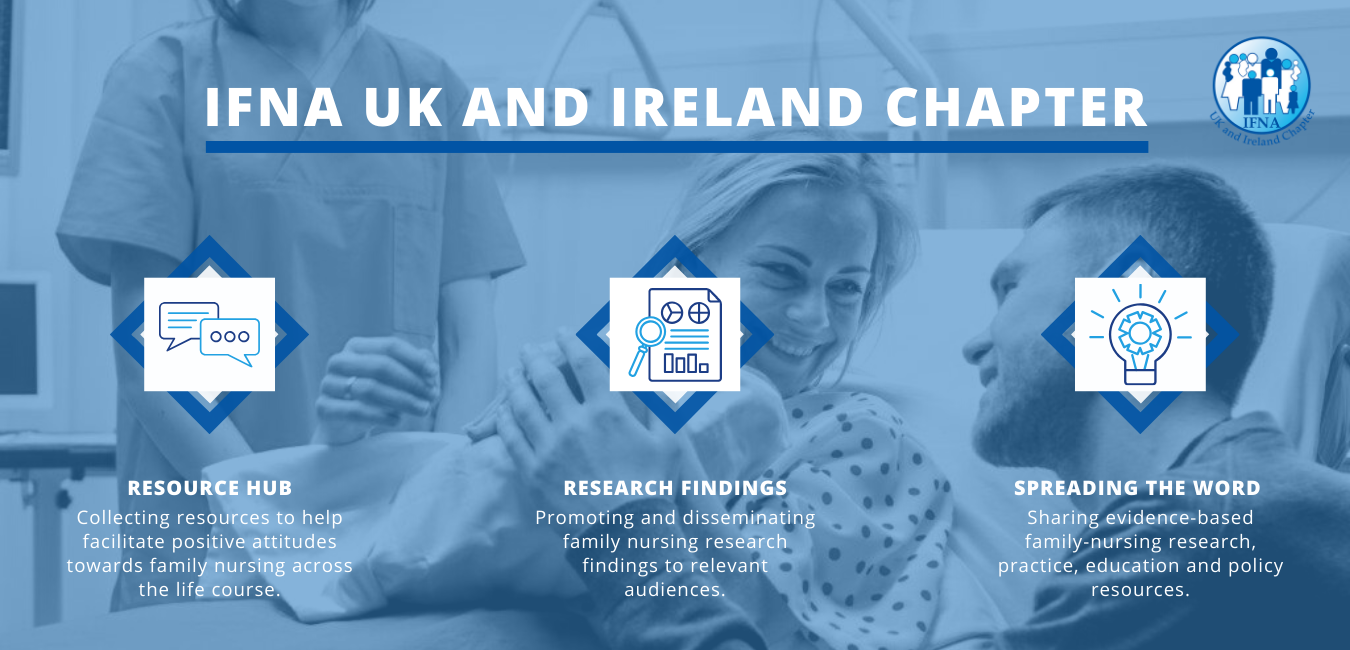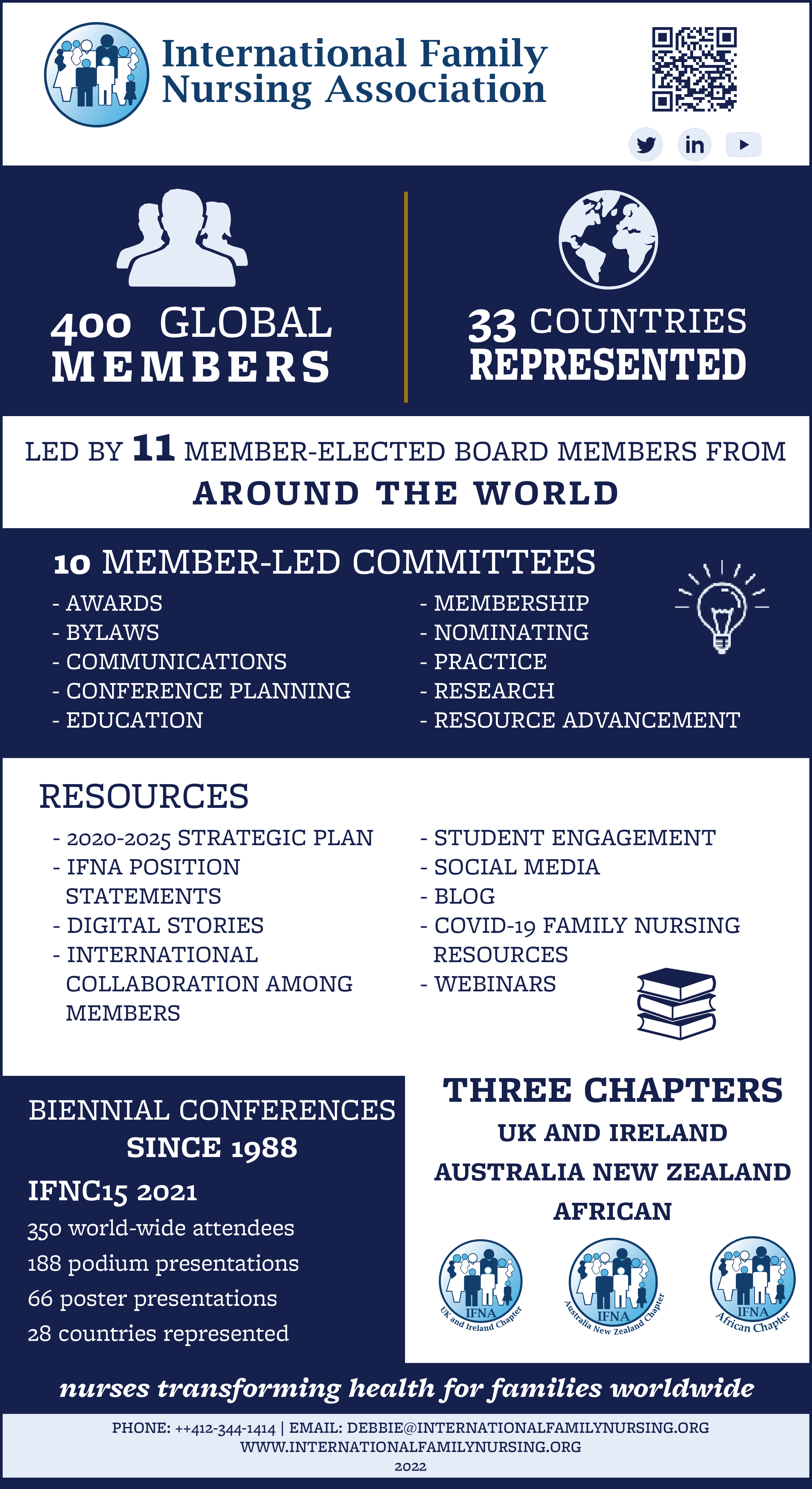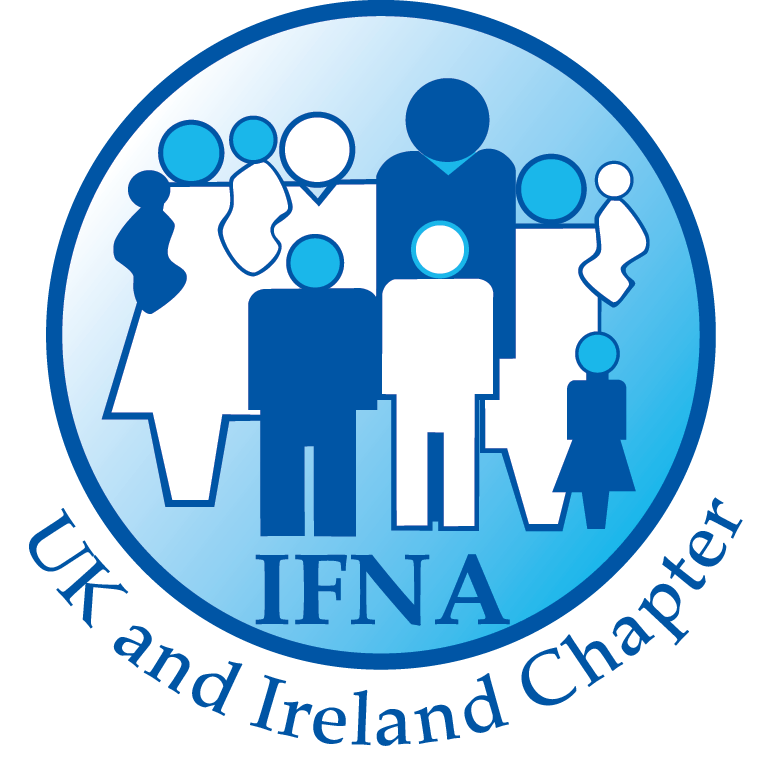Nurses play a major role in supporting people across the life-course, from the beginning to the end of life. Nurses support families to live healthy lives, to manage acute illness and live with long-term conditions. Families are units of interdependent individuals; consequently, changes in one family member affects others in that family unit. Interventions designed to empower families to live healthy lives are most effective when the whole family is part of the change.
During acute illness, individuals within families rely on other family members to care for them and, often, to access health care. Following acute hospital admissions, families care for people during their recovery – never more so than now during the COVID-19 pandemic. Individuals with long-term conditions also often rely on family members for home-based support and self-management of their conditions; again we see this happening during the current pandemic, including with some people and their family members now living with ‘long COVID-19’.
Whenever a family member’s health status changes, it can bring family role-changes, causing stress to the family unit as they struggle to adapt to altered circumstances, in the short- or the long-term. Nurses are ideally positioned to recognise these stressors and to support families, through developing trusting relationships and respecting individuals and their contribution to the health and wellbeing of the patient.
There is little emphasis in the UK and Ireland on care of the whole family; the focus is mostly on caring for individuals living with one or more long-term conditions. The needs of family members are only considered insofar as they form part of the patient’s support network.
Research has found that involving family members as carers in delivering treatment and supporting rehabilitation can improve a patient’s clinical outcomes and general wellbeing, but this caring role can unfortunately have a negative effect on the carer’s own wellbeing. It is important that while supporting patients, healthcare professionals also have the knowledge, skills, and resources to support family members who are carers.
Working ‘with’ families as partners in care, according to patient preference, and advancing research practice/policy towards relational and family systems approaches to care and to implementing family-focused nursing interventions are critical to healthcare reform and to family health and healing outcomes.
“Families are an integral part of the unit which support a child with acute and complex health needs and these children and young people are often reliant upon extended family to support with care giving. Therefore, information and training is critical in managing that care.”
International models of family nursing do not address the particular challenges facing UK and Irish healthcare professionals, where health service systems are strikingly dissimilar to those in other countries. It is timely, therefore, to develop strategies to promote family nursing within the UK and Ireland. Through our various activities, we aim to develop, actively promote and sustain a discourse around models of nursing that may be relevant to promoting collaborative family nursing approaches in the UK and Ireland. You can find out about some of our achievements here.
Click here to meet the IFNA – UK and Ireland Chapter Executive and click here to view the recent Executive meeting minutes.
The purpose of this website is to bring together a set of resources that can help facilitate attitudes towards family nursing, promote and disseminate survey results, and share evidence-based family nursing resources to a wide audience of healthcare professionals, researchers, families and the public.

We are partnered with the International Family Nursing Association (IFNA)
We became the first local chapter of the International Family Nursing Association (IFNA) in 2017. IFNA embraces a compassionate family focus on health, social justice, human dignity and respect for all, as shown by the core values, vision, and mission of IFNA. You can find out more about our partner organisation by visiting their website.


